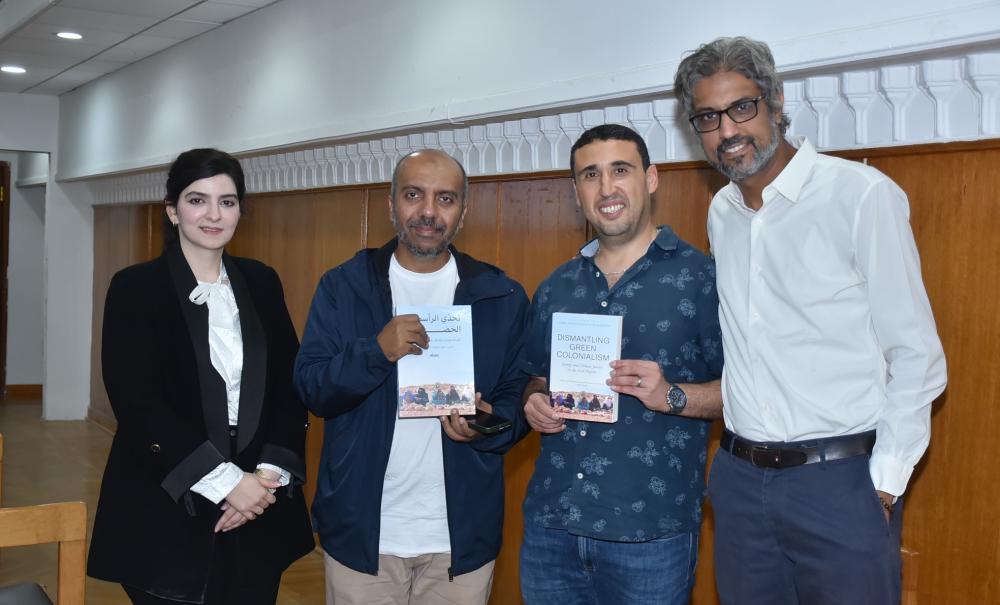
Book Talk on Green Colonialism and the Arab World's Energy Future with the Editor of "Dismantling Green Colonialism"
On October 23 and 24, 2023, Pathways Beyond Neoliberalism: Voices From MENA Program hosted a book talk for "Dismantling Green Colonialism: Energy and Climate Justice in the Arab Region," edited by Hamza Hamouchene.
The events, which took place at Tahrir Campus and New Cairo Campus, respectively, drew a wide range of students, academics, and environmentalists who were keen to explore the Arab region's unique position at the crossroads of fossil fuel wealth and renewable energy potential.
The event featured a panel of experts from diverse backgrounds. Hamza Hamouchene, the book editor and an Algerian researcher-activist, brought his expertise in social and environmental justice to the discussion. He was joined by two authors who contributed chapters to the anthology. Asmaa Mohamed Amin, a leading energy engineer, shared insights on renewable energy solutions and sustainable development, with an emphasis on the case of Jordan and Mohamed Gad, a renowned economic journalist and author of a chapter of electricity pricing in Egypt from an historical perspective, provided valuable insights into global economic trends and their impact on society. Last but not least, Akram Ismail, a political activist and engineer specialized in solar energy and electricity, offered a critical perspective on current affairs.
During the talk, attendees delved into the book's critical analysis of the way (neo)colonial agendas have shaped energy policies in Arab countries. Speakers emphasized the need to dismantle Eurocentric narratives that often overlook local contexts, needs and experiences.
Hamouchene illuminated the pressing necessity for a just energy transition for the Arab region, that not only addresses ecological crises but also prioritizes social equity. He articulated how the Arab region's rich fossil fuel reserves have often been a double-edged sword providing wealth while simultaneously perpetuating colonial legacies and environmental degradation while blocking a just energy transition.
The discussions were enriched by insights from attendees interested in green technology, political economy, and Middle East studies, all emphasizing the urgent need for systemic change in energy practices.
With its focus on local voices and actionable solutions, "Dismantling Green Colonialism" book-talk marks a significant contribution to the ongoing conversation about environmental justice and sustainability in a region rich in history and potential.